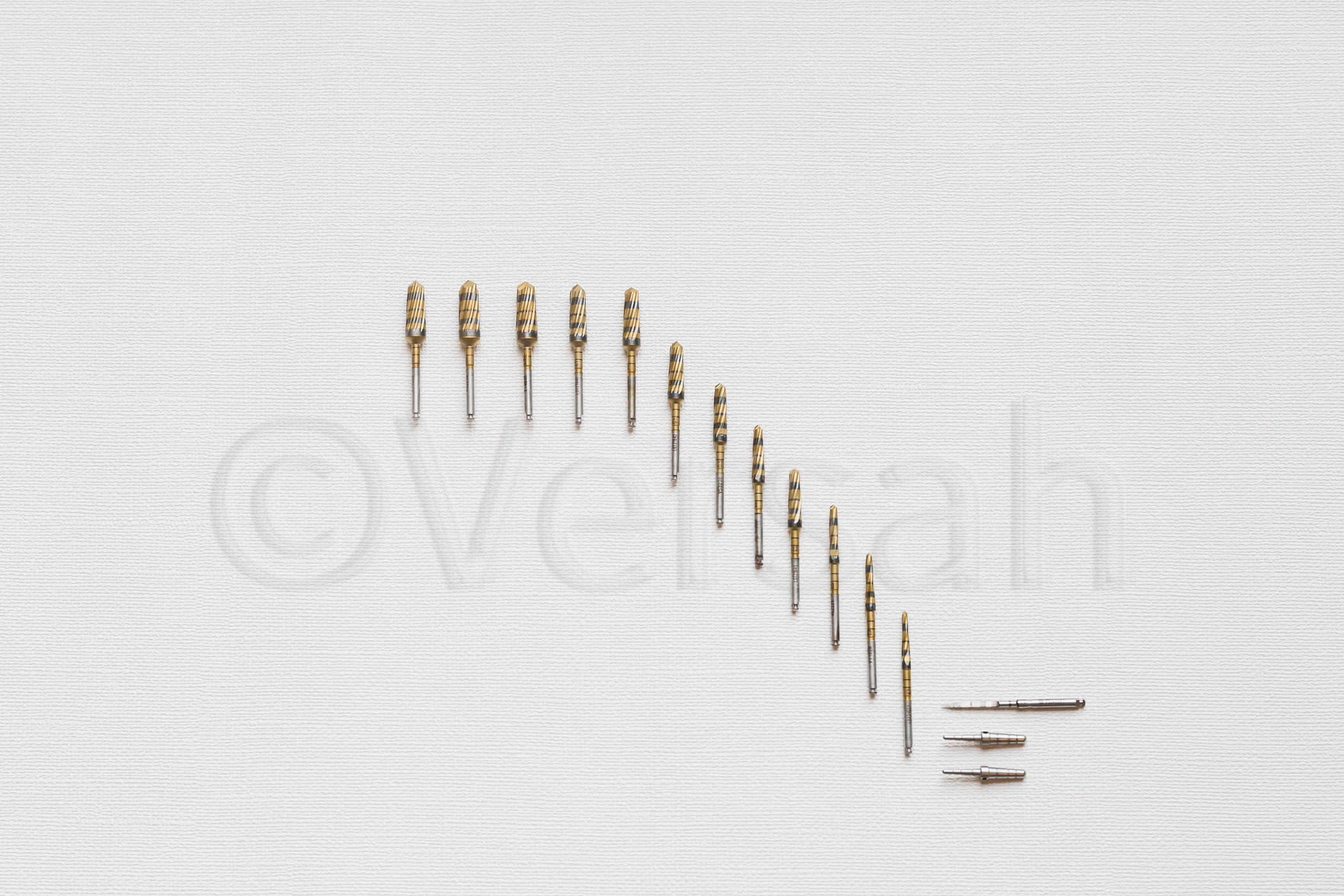
In 2019, we welcomed the Versah dental products into our range. Their universal drilling protocols have revolutionised the world of dental surgery. This offers huge benefits to you as a clinician and your patient.
The limitations of traditional drilling techniques
What makes Versah burs so revolutionary? They are rotated in reverse when preparing osteotomies. And that is precisely what distinguishes them from standard drill designs used in industrial applications.
Traditional dental drilling techniques may produce elongated or elliptical osteotomies due to chatter of the drills. In other words, drilling is less precise, which may impact the quality of the adhesive bond and implant stability.
Moreover, narrow and complex osteotomies can cause injuries or excessive bone loss, which in the latter case requires an additional bone grafting procedure. An invasive treatment for your patient, adding healing time to the treatment.
Small adjustment, big difference
The Versah biomechanical bone preparation technique ensures maximum preservation of the patient’s bone and optimum implant stability. By drilling in a counterclockwise direction with steady external irrigation, the excavated bone is not pulverised but guided in outwardly expanding directions and compacted with the bone tissue bulk.
Versatile utilisation
Besides the densifying mode, the burs also feature an ultra-precise cutting mode that is activated by rotating the bur in a clockwise direction. This allows the clinician to use the same bur for different applications in the same patient.
In addition to implant-related procedures, the Versah burs are also suitable for sinus lifts, ridge expansion and for enhancing implant primary stability.
The universal drilling protocols are compatible with all implant systems – including guide systems – on the market.
Want to know more about these innovative Versah products?
ProScan offers an extensive range of Versah burs. Discover them all in our webshop. Do you still have questions about Versah or one of the other brands at ProScan? Contact our denticians for more information and advice.